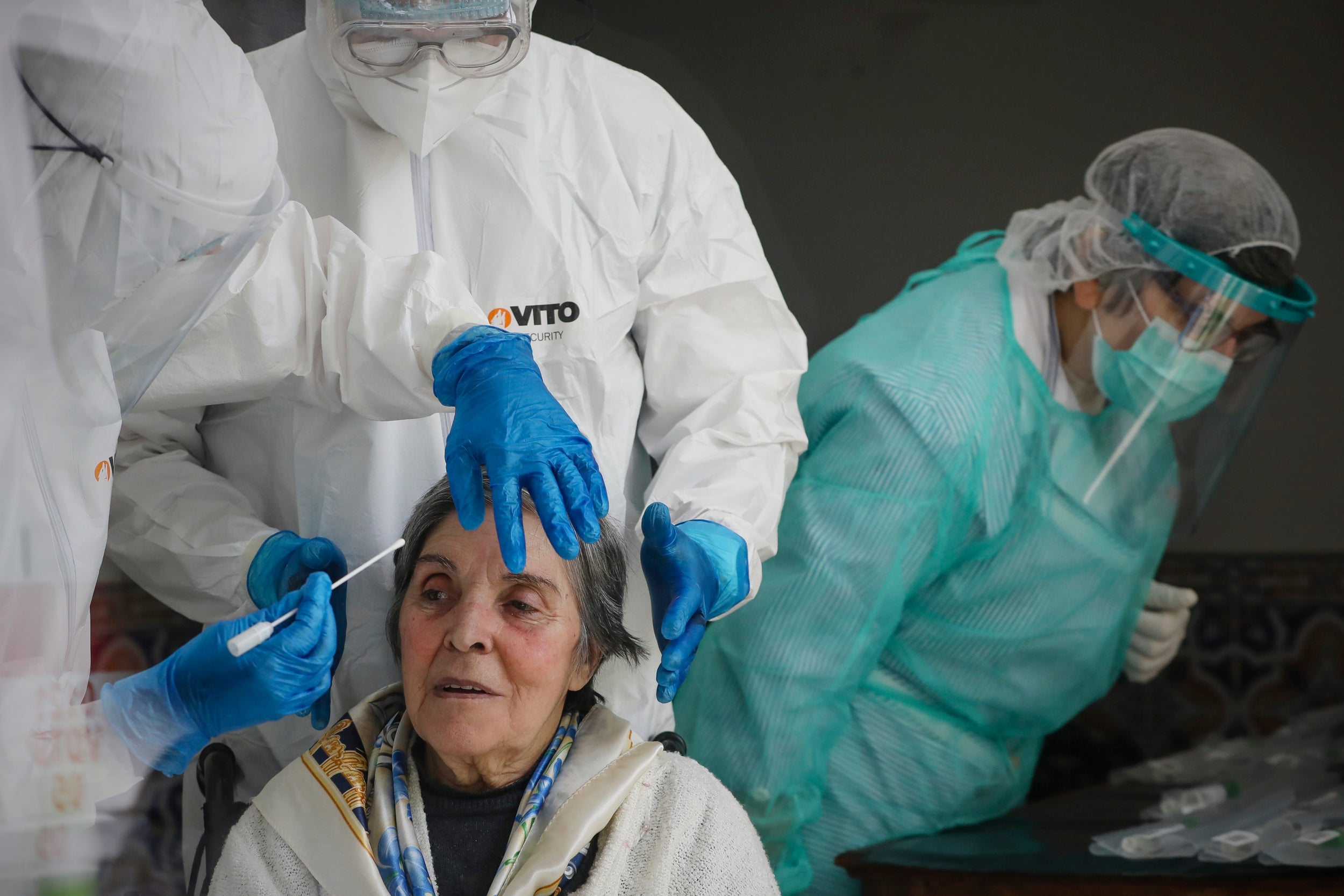How Portugal’s fast response kept coronavirus in check
Health minister tells Graham Keeley country prepared for ‘worst-case scenario’


As the world struggles with the worst public health crisis in a century, Portugal has now been hailed internationally as one of the few success stories, especially compared to Spain.
Crucially, the minority socialist government took the decisive action to impose a lockdown in mid-March when there were only 112 confirmed cases and no fatalities.
Spain meanwhile only imposed a state of emergency when it had more than 5,000 cases and 133 deaths.
Portugal has a particularly vulnerable population, with some 22 per cent of 10.3 million people are aged 65 or over.
Nevertheless, Portugal had so far reported 24,322 confirmed cases and 948 deaths on Tuesday, far less than Italy and Spain.
António Sales, the health secretary, said coordination between politicians and health advisers had been key to the country’s response.
“The national response to the coronavirus has been proportional, dynamic and flexible. This means that from the end of January, Portugal has carefully planned its response having into account the international situation and the risk assessment undertaken by health authorities,” he told The Independent.
He said that the government had always prepared for the “worst-case scenario”.
“Like other countries, Portugal is constantly learning from its own experience and the experience of other countries,” he added.
As Italy and Spain struggled to cope with the number of patients going to hospital, Portugal was advised to avoid putting unnecessary pressure on intensive care units and staff.
The government decided about 80 per cent of Covid-19 cases could be treated at home by doctors who could visit patients.
The gamble paid off, freeing up doctors and nurses in hospitals to concentrate on the most critical cases.
“We were about three weeks ahead of Italy and over a week ahead of Spain and we used that advantage to go into lockdown,” Dr Felipe Froes, a respiratory consultant who is part of a public health task force which advises the Portuguese government, told The Independent.
“We used what happened in other countries as a lesson and profited from that. We have done okay but we have not won the championship yet.”
Marcelo Rebeldo de Sousa, president of the Portuguese republic, praised political leaders for listening to the experts.
“With this path be a miracle for us, as so many, from outside, say? It is good they think so but no it is not a miracle, it is the result of much sacrifice,” he said in an address to the country.
“It is the result of, in these crucial phases, those who have political responsibilities, listening to the experts.”
Restrictions in Portugal have been laxer than across the border in Spain. People can go for walks or jogs whereas in Spain this is banned and only essential trips to buy food, seek emergency help or to go to work are allowed.
Portugal hopes to gradually relax restrictions on schools, stores and cinemas from next month. Seats at any cultural space will be carefully counted.
António Costa, the Portuguese prime minister, said his government will begin a cautious reopening of the country when the lockdown ends next month.
“It will have to be gradual, progressive and controlled so we don’t lose in May what we’ve gained in the last two months,” Costa said.
Costa has benefited from a political ceasefire during the epidemic.

Riu Rio, leader of the conservative opposition Social Democratic Party, has supported the government’s handling of the crisis.
It is a stark contrast to the political bickering in Spain where the opposition initially supported the left-wing government but has now criticised prime minister Pedro Sánchez’s handling of the outbreak.
But Portugal’s tourism industry, which accounts for 14 per cent of GDP, is unlikely to recover in time for this summer season, and could pose a future dilemma for the government.
Foreign tourists are not expected to come to Portugal this year and the government hopes to concentrate on the domestic market.
Beaches would face new restrictions to prevent crowds gathering.
A number of cities and research organisations are rolling out antibody tests even though national authorities warn it may be too early to draw conclusions on immunity among the population as a whole.
The psychological impact of the outbreak on Portuguese society has been less than in some other European nations. Spaniards, for example, have confronted by images of coffins piled high in ice rinks and car parks.
“Here just less than a thousand people have died which is of course a tragedy,” said María Mendes, a communications executive, told The Independent.
“But we have not had the same scenes of overloaded morgues and things like that. It has not been a national tragedy on such a scale. Instead, there has been a sense of missing each other. Missing friends and family.”
Join our commenting forum
Join thought-provoking conversations, follow other Independent readers and see their replies
Comments